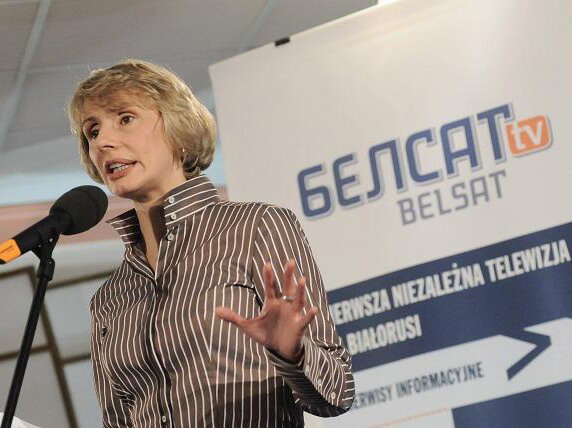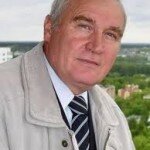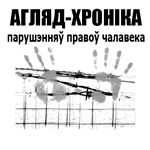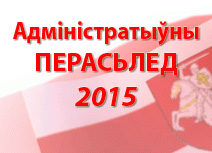
Belsat TV as an independent television and a source of information often reports about political prisoners in Belarus. To what extent such information are priority and in what way they are passed – Palitviazni.info was told by Belsat’s Director Agnieszka Romaszewska-Guzy.
Agnieszka Romaszewska-Guzy: We strive to make the subject of political prisoners as publicized as possible. The very fact of the presence of political prisoners in the country is a serious problem and, there’s no discussion as to that. Society, however, has certain characteristics: whenever something happens, for example, appears new prisoner of conscience, or there are cases of torture – the memory of that disappears pretty quickly. The prisoners are serving sentences, then are released and after some time in the society’s memory there is no trace of such a prisoner of conscience. Hence, it is still a difficult task to repeatedly prepare information that there are still appearing new prisoners, new opponents of the ruling power. I believe that the main task of the television is to keep in people’s memory fact that there are still people imprisoned for political reason.
– How often in Polish media appears the topic of political prisoners in neighbouring Belarus?
Agnieszka Romaszewska-Guzy: Honestly, not so often. The reason lies in the fact that the attention of media focuses on Belarus, as well as on other countries, primarily during some of the most important and major events. Although, currently there appears more information on Belarus mostly due to the activities of foreign politicians, including MEPs. Of course, the activities of civil society organizations, reminding citizens about the existence of political prisoners is also important here. It is obvious that the media in Poland, do not write about Belarus every day.
– In addition to international solidarity with political prisoners exists also solidarity of Belarusian citizens. How do you think, in the moral aspect, which one is more important for political prisoners?
Agnieszka Romaszewska-Guzy: Both are very important. Of course, the solidarity in the country is very different. It is real support. Help for fellow citizens. In addition, prisoners of conscience are imprisoned due to their actions, convictions and beliefs directed to the benefit of the citizens of their country. Therefore, any support should start from the inside.
– We have already mentioned that one learns about the political prisoners often from various social action organized by NGOs and the media. Can these forces unite to strengthen and consolidate solidarity with the political prisoners?
Agnieszka Romaszewska-Guzy: I think that the growth of solidarity requires daily work. First of all, people must understand that solidarity with political prisoners is their civic duty. For seven years I have been following the situation in the Belarusian media. Sometimes it seems to me that many journalists simply do not see the necessity to respond to or report news about political prisoners. They perceive the situation as something normal. That is, there are politicians involved in the topic, independent media and information campaigns concerning certain events. There are followed the rules necessary for the functioning of independent media. I could, however, find that there is no such thing as normal situation. There are no conditions for the existence of normal political activity, normal independent media. And it is currently impossible, that public media inform about the real situation in the country. The rules necessary to preserve the independence of the media are not abided, as is the case in normal democratic countries. Since there is no possibility to inform, the topic remains unpublicized. And it’s not as it should be. First of all, we are talking about the moral obligation of journalists to inform about political prisoners. These information must be getting to the public. I noticed that in Belarus after some turbulent event always comes silence and there is created an impression that everything is all right in the country. But what is behind this order, what kind of normality? Dashkievich, Statkievich and ten others are still political prisoners.
palitviazni.info






 Belarusian
Belarusian English
English Русский
Русский polski
polski









